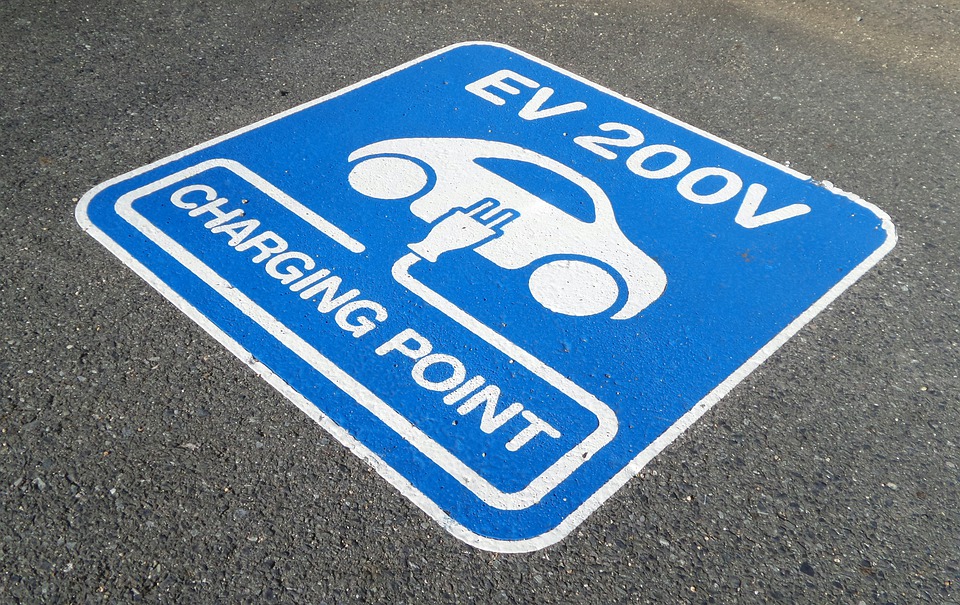The United States Transportation Department has approved the plans for electric vehicle charging stations nationwide. All 50 states would have EV charging stations, including Washington DC and Puerto Rico.
The Transportation Department said Tuesday it has approved the plans for EV charging stations in all 50 states, including DC and Puerto Rico. The plans would cover around 120,700 kilometers of highways.
The funding is coming from the Bipartisan Infrastructure Law, which has a $5 billion provision for states to install EV charging stations along interstate highways in a span of five years.
The department said states would now have access to over $1.5 billion in funds to install EV chargers. The approval follows the announcement by the White House earlier this month, that 35 of the 50 state plans were approved at the time.
“We’re not going to dictate to the states how to do this, but we do need to make sure that they meet basic standards,” said Transportation Secretary Pete Buttigieg earlier this year.
The agency said states should fund the DC Fast Chargers; stations that have at least four ports that can simultaneously charge four EVs – and install EV charging infrastructure every 50 miles along interstate highways and be located within one mile of highways.
80 percent of EV charging costs are made up of federal funds, while private or state funds make up the remaining 20 percent.
President Joe Biden has sought to have 50 percent of all vehicles sold in the country be electric or hybrid electric models by 2030, along with 500,000 EV charging stations. However, Biden has not endorsed phasing out gas-powered vehicle sales by 2035.
The country’s regulators fined 16 financial companies an overall $1.8 billion after their staff discussed deals and trades on their personal devices. The companies include Goldman Sachs, Barclays, Bank of America, Citigroup, Credit Suisse, Morgan Stanley, and UBS, among others.
This is seen as a landmark case for the Securities and Exchange Commission and the Commodity Futures Trading Commission, marking one of the largest collective resolutions by the panels.
The agencies said that from January 2018 until the end of September 2021, the staff of the banks involved was routinely communicating about business matters with colleagues, clients, and other third-party advisers using their personal devices, including text messages and the WhatsApp platform.



 New York Legalizes Medical Aid in Dying for Terminally Ill Patients
New York Legalizes Medical Aid in Dying for Terminally Ill Patients  U.S. Announces Additional $6 Million in Humanitarian Aid to Cuba Amid Oil Sanctions and Fuel Shortages
U.S. Announces Additional $6 Million in Humanitarian Aid to Cuba Amid Oil Sanctions and Fuel Shortages  TrumpRx.gov Highlights GLP-1 Drug Discounts but Offers Limited Savings for Most Americans
TrumpRx.gov Highlights GLP-1 Drug Discounts but Offers Limited Savings for Most Americans  Trump Signs Executive Order Threatening 25% Tariffs on Countries Trading With Iran
Trump Signs Executive Order Threatening 25% Tariffs on Countries Trading With Iran  U.S. Lawmakers to Review Unredacted Jeffrey Epstein DOJ Files Starting Monday
U.S. Lawmakers to Review Unredacted Jeffrey Epstein DOJ Files Starting Monday  Japan Election 2026: Sanae Takaichi Poised for Landslide Win Despite Record Snowfall
Japan Election 2026: Sanae Takaichi Poised for Landslide Win Despite Record Snowfall  U.S. to Begin Paying UN Dues as Financial Crisis Spurs Push for Reforms
U.S. to Begin Paying UN Dues as Financial Crisis Spurs Push for Reforms  Missouri Judge Dismisses Lawsuit Challenging Starbucks’ Diversity and Inclusion Policies
Missouri Judge Dismisses Lawsuit Challenging Starbucks’ Diversity and Inclusion Policies  Norway Opens Corruption Probe Into Former PM and Nobel Committee Chair Thorbjoern Jagland Over Epstein Links
Norway Opens Corruption Probe Into Former PM and Nobel Committee Chair Thorbjoern Jagland Over Epstein Links  Nighttime Shelling Causes Serious Damage in Russia’s Belgorod Region Near Ukraine Border
Nighttime Shelling Causes Serious Damage in Russia’s Belgorod Region Near Ukraine Border  Trump Backs Nexstar–Tegna Merger Amid Shifting U.S. Media Landscape
Trump Backs Nexstar–Tegna Merger Amid Shifting U.S. Media Landscape  South Korea Assures U.S. on Trade Deal Commitments Amid Tariff Concerns
South Korea Assures U.S. on Trade Deal Commitments Amid Tariff Concerns  TrumpRx Website Launches to Offer Discounted Prescription Drugs for Cash-Paying Americans
TrumpRx Website Launches to Offer Discounted Prescription Drugs for Cash-Paying Americans  Trump Says “Very Good Talks” Underway on Russia-Ukraine War as Peace Efforts Continue
Trump Says “Very Good Talks” Underway on Russia-Ukraine War as Peace Efforts Continue  Trump Endorses Japan’s Sanae Takaichi Ahead of Crucial Election Amid Market and China Tensions
Trump Endorses Japan’s Sanae Takaichi Ahead of Crucial Election Amid Market and China Tensions  Pentagon Ends Military Education Programs With Harvard University
Pentagon Ends Military Education Programs With Harvard University  Federal Judge Restores Funding for Gateway Rail Tunnel Project
Federal Judge Restores Funding for Gateway Rail Tunnel Project 































